Ultimate Guide to ERP Systems for UAE Businesses: Modules, Use Cases & ROI
Running a business in the UAE today means balancing speed with precision. On one hand, the market is fast-moving, with new competitors, digital-first customers, and regulations that evolve quickly. On the other hand, leaders must manage compliance with VAT and corporate tax, keep investors happy with transparent reporting, and ensure operations run like clockwork.
Many businesses in the UAE, from trading houses in Sharjah to retailers in Dubai, still rely on a patchwork of tools, Excel for accounts, standalone payroll software, and manual inventory logs. It works, until it doesn’t. When a company begins to scale, these disconnected processes create blind spots. Decisions are made on guesswork instead of data. Errors creep in. Growth slows down.
That’s where ERP systems step in. Enterprise Resource Planning is no longer just a tool for large corporations, it has become the digital backbone of UAE companies of all sizes. It unifies every critical function, finance, HR, supply chain, sales, and reporting, into one platform, giving leaders a 360-degree view of their operations.
For UAE businesses, ERP systems are not only about efficiency. They are about compliance, agility, and visibility. A VAT filing done wrong, a shipment delayed, or an overrun in project costs can quickly erode margins in a competitive environment. ERP mitigates those risks by ensuring data accuracy and streamlined processes.
What Exactly Is an ERP System?
At its core, an ERP system is a centralized platform that integrates all the moving parts of your business into one digital ecosystem. Instead of operating in silos, departments like finance, HR, procurement, sales, and supply chain share the same data source.
Let’s make it concrete. Imagine you’re running a logistics business in Dubai. A client books a shipment. With ERP, the booking immediately flows into finance (to generate an invoice), into warehouse management (to allocate inventory space), into HR (to assign staff to the task), and into analytics (to forecast margins). No manual data re-entry, no chasing teams for updates.
In other words, ERP systems deliver what every UAE business leader craves: a single version of the truth.
Core ERP Modules UAE Businesses Can’t Ignore
ERP isn’t a one-size-fits-all product. It’s a collection of modules, each designed to handle a specific business function but working together seamlessly. Let’s break down the key ERP modules that matter most for UAE companies.
1. Financial Management: The Foundation
Finance is the backbone of ERP. Beyond managing the general ledger, accounts payable, and receivable, ERP financial modules are tailored to handle VAT and corporate tax compliance. For UAE CFOs, this means less time spent on reconciliation and more time on strategic forecasting. Automated workflows reduce errors in tax filing and financial statements, critical when audits are becoming stricter.
2. Human Resources & Payroll
Managing HR in the UAE has its own complexities, including visa processing for expats, end-of-service benefits, and payroll compliance with WPS (Wage Protection System). An ERP with HR and payroll modules centralizes employee records, automates payroll disbursement, and ensures compliance with UAE labor laws. This frees HR teams to focus on employee engagement instead of paperwork.
3. Supply Chain & Inventory Management
Whether you’re a trading company importing goods through Jebel Ali Port or a retail chain stocking malls across Dubai, supply chain visibility is non-negotiable. ERP supply chain modules provide real-time stock tracking, automated purchase orders, and predictive analytics to reduce shortages. With cloud ERP, managers can access inventory data across warehouses instantly, improving decision-making.
4. Customer Relationship Management (CRM)
In a service-driven economy like the UAE, customer retention is as critical as acquisition. ERP-integrated CRM ensures every interaction, be it sales, support, or marketing, is captured in one place. This helps businesses personalize customer experiences, track pipelines, and improve sales conversion rates.
5. Project Management
For industries like construction, real estate, and engineering, pillars of the UAE economy, projects can involve millions of dirhams and multiple stakeholders. ERP project modules help leaders track budgets, allocate resources, and monitor progress against milestones. The result: fewer cost overruns and timely delivery.
Use Cases: ERP in Action Across UAE Industries
The real power of ERP shines through in how it adapts to different industries. Here’s how ERP systems are being applied across sectors in the UAE:
- Retail Chains in Dubai & Abu Dhabi
- ERP integrates point-of-sale data with inventory and finance. This means store managers always know stock levels, while finance teams see daily revenue in real time. E-commerce integration ensures customers enjoy a seamless omnichannel experience.
- Construction & Real Estate Firms
- Project and financial modules work hand-in-hand to track project costs. With ERP, managers can compare actual spend against budget, ensuring large-scale developments stay financially viable.
- Trading & Logistics Companies
- From procurement to customs clearance, ERP gives full visibility of shipments. Automated processes reduce delays, while analytics highlight bottlenecks in the supply chain.
- Professional Services & Consultancies
- For firms in Dubai’s DIFC or Abu Dhabi Global Market, ERP integrates time tracking, billing, and HR. This ensures clients are billed accurately, employees are paid on time, and profitability can be tracked per project.
These industry-specific examples highlight a key truth: ERP isn’t generic. It moulds itself to the priorities of each sector.
The ROI Question: What’s in It for UAE Businesses?
The most common hesitation leaders in the UAE have before adopting ERP is cost. It’s natural, ERP requires investment, and change management can be daunting. But the ROI (Return on Investment) often speaks for itself.
- Efficiency Gains –Automating manual processes like VAT filing, payroll, and reconciliations reduces staff hours and human error.
- Compliance Savings –Penalties for non-compliance with VAT or corporate tax can be steep. ERP reduces that risk significantly.
- Faster Decisions –Dashboards and analytics deliver insights instantly, helping leaders act instead of waiting for reports.
- Scalability –Whether you’re expanding into Saudi Arabia, Qatar, or beyond, ERP scales without requiring an overhaul.
Take, for example, a mid-sized trading company in Dubai. Before ERP, stock-outs and order delays cost them significant revenue. After implementing cloud ERP, automated re-ordering cut losses by 20%. The system paid for itself within 18 months.
Choosing the Right ERP in the UAE: Avoiding Common Pitfalls
The ERP market is crowded, with vendors promising everything from “instant ROI” to “AI-driven automation.” For UAE businesses, the challenge isn’t a lack of choice, it’s making the right choice. Here are the realities leaders need to weigh.
1. Local Compliance
Many global ERP vendors do not have built-in VAT and corporate tax compliance for the UAE regulations. This forces businesses to add third-party plugins or customise heavily, which increases costs and slows down deployment. Always check whether the ERP comes pre-configured for local accounting standards, VAT, and WPS compliance.
2. Industry Fit
A manufacturing ERP designed for factories in Europe won’t seamlessly fit a trading business in Dubai. Industry-specific modules matter. For instance, construction companies should prioritize project management modules, while retail chains need strong POS and inventory integration.
3. Deployment Flexibility
In the UAE, some businesses, especially government-linked entities, still prefer on-premise ERP for security. But SMEs and mid-sized companies often lean toward cloud ERP for affordability and ease of scaling. The decision depends on data sensitivity, budget, and IT maturity.
4. Vendor Support
Global vendors like SAP and Oracle are powerful but often lack localized customer support for SMEs in the UAE. On the other hand, regional vendors like HostBooks focus specifically on Gulf market needs, offering VAT-ready modules and local implementation support. The quality of ongoing support often determines ERP success more than features.
5. Cost Transparency
ERP budgets can balloon if licensing, implementation, training, and customization aren’t accounted for upfront. UAE businesses should press vendors for the total cost of ownership (TCO) over at least five years, not just the first-year subscription fee.
Cloud ERP: The Game-Changer for UAE Enterprises
Cloud ERP has become the default choice for forward-looking businesses in the UAE. Unlike on-premise systems that require heavy infrastructure investment, cloud ERP is hosted online and accessed via subscription. Here’s why it matters in the UAE context.
- Scalability for Regional Growth –A retail chain that starts in Dubai but expands to Riyadh or Doha can scale cloud ERP instantly without rebuilding infrastructure.
- Mobility & Remote Access –Executives can track sales, inventory, or HR dashboards from their phones. This has become vital for businesses with distributed teams and multiple locations.
- Faster Updates & Compliance – Vendors push automatic updates, ensuring VAT, corporate tax, and labor law compliance stay current without manual patches.
- Lower Entry Cost –Subscription pricing makes ERP accessible to SMEs who previously couldn’t afford on-premise systems.
For example, a Sharjah-based logistics company that moved from on-prem ERP to cloud ERP reported 40% faster order processing times and significant savings in IT overhead.
Digging Deeper Into ROI: Tangible and Intangible
ERP ROI isn’t just about cost savings. The impact extends into decision-making, employee productivity, and business resilience.
- Operational Cost Reduction
- Automating payroll, invoicing, and reconciliations can cut admin hours by up to 30%. For a company spending AED 1M annually on back-office staff, that’s AED 300K freed up for growth.
- Revenue Growth
- By integrating CRM into ERP, companies often see improved lead conversion and customer retention. For UAE retail brands competing with global chains, this edge can directly increase top-line revenue.
- Regulatory Risk Avoidance
- Penalties for incorrect VAT filing can go up to 300% of the tax due. Avoiding just one penalty through accurate ERP-driven reporting can save millions for larger firms.
- Employee Morale & Productivity
- When employees aren’t bogged down with duplicate data entry or manual approvals, morale improves. In competitive UAE talent markets, retaining skilled staff can save significantly on hiring costs.
- Strategic Insights
- ERP dashboards give real-time visibility into sales, cash flow, and supply chains. During economic shifts, like fluctuating oil prices or trade disruptions, leaders can pivot quickly, minimizing losses.
HostBooks ERP: A Case for UAE Businesses
Let’s bring it closer to home. While global ERP players dominate conversations, many UAE businesses, especially SMEs and mid-sized firms, require affordable, VAT-compliant, and locally relevant ERP solutions
This is where HostBooks ERP has been making strides. Designed with Gulf market realities in mind, it offers
- Real-Time Monitoring –Continuous visibility across finance, inventory, procurement, HR, and compliance.
- Predictive Insights –Early risk detection and demand forecasting powered by AI-driven analytics.
- Automated Optimization –Improves margins and reduces working capital requirements through process automation.
- Simplifies Audits –Always-on compliance enforcement ensures audit readiness with minimal effort.
- Decision Precision –Adaptive learning models refine accuracy and decision-making over time.
- Less Manual Intervention –Streamlines workflows, enabling faster business scaling with reduced human dependency.
Unlike global players who offer generic solutions, HostBooks ERP adapts to UAE-specific workflows, making it a pragmatic choice for companies who want agility without overspending.
The ROI Framework UAE CFOs Should Apply
Measuring ERP ROI can be tricky because the benefits span financial, operational, and strategic layers. To simplify, CFOs in the UAE can break ROI into three buckets:
1. Hard ROI (Tangible Savings)
- Reduction in manual labor costs (fewer admin hours, lower payroll for repetitive tasks).
- IT infrastructure savings when moving from on-premise to cloud ERP.
- Lower compliance penalties through accuracy.
2. Soft ROI (Efficiency & Experience Gains)
- Faster monthly closes, helping leadership make quicker strategic calls.
- Reduced project delays and fewer supply chain disruptions.
- Improved employee satisfaction from automated workflows.
3. Strategic ROI (Long-Term Value)
- Scalability into Saudi Arabia, Qatar, and other Gulf markets.
- Improved investor confidence with transparent financial reporting.
- Stronger competitiveness against global firms operating in the UAE.
A UAE-based construction company we studied applied this framework and found that within 18 months, their ERP implementation paid back in direct savings while also reducing their reliance on external auditors.
Decision Checklist: How UAE Leaders Can Select the Right ERP
The ERP decision is high-stakes, especially when you consider how sticky these systems are once implemented. Here’s a practical checklist tailored for UAE enterprises.
- Is it VAT and Corporate Tax Ready?
- Avoid ERPs that require separate add-ons for compliance.
- Does it support WPS and Local HR Rules?
- HR and payroll compliance in the UAE is non-negotiable.
- Is It Industry-Specific?
- ERP for a trading company should not look the same as ERP for a hospital.
- Does It Offer Cloud Flexibility?
- Check if you can scale licenses easily as your team grows.
- What’s the Total Cost of Ownership (TCO)?
- Ask vendors for a 5-year projection, including training and support, not just first-year pricing.
- Is There Local Support?
- ERP without reliable, on-ground support can quickly turn into shelfware.
- How User-Friendly Is It?
- If employees need weeks of training just to use the system, adoption will suffer.
UAE CFOs and CIOs should treat this checklist as non-negotiable. Each point addresses a pain area that businesses in the region face during digital transformation.
ERP in Action: ROI Benchmarks from UAE Firms
Let’s zoom in on what real ROI looks like once ERP is deployed in the UAE.
- Retail Business in Dubai Mall
- By integrating sales and inventory in ERP, this company achieved a 20% reduction in stock-outs, improving customer satisfaction.
- Logistics Firm in Jebel Ali
- Automating order management and invoicing reduced billing errors by 35% and improved cash flow visibility.
- Mid-Sized Manufacturing Plant in Sharjah
- ERP-driven demand planning improved production scheduling, reducing waste by 18% and freeing working capital.
These numbers matter because UAE markets are hyper-competitive. Whether you’re in retail, logistics, or construction, operational efficiency and compliance are what separate winners from laggards.
Why HostBooks ERP Stands Out for UAE Enterprises
While SAP, Oracle, and Microsoft Dynamics dominate global headlines, they often overwhelm SMEs and mid-sized firms with high costs and complex deployments. For UAE businesses seeking a balance between affordability and compliance, HostBooks ERP has become a serious contender.
- WPS-ready HR and payroll modulesstreamline labor law adherence.
- Cloud-native architecturemeans lower upfront costs and easy scaling.
- Local supportensures smooth onboarding and faster issue resolution.
What makes HostBooks ERP particularly attractive is that it doesn’t force UAE companies into “one-size-fits-all” global templates. Instead, it adapts to industries like trading, construction, logistics, and retail, aligning ERP features with actual business workflows
The Bigger Picture: ERP as a Growth Enabler, Not Just Software
Too often, ERP is seen as a software cost, a “necessary evil.” But in reality, ERP is a growth enabler. For UAE enterprises, it is the bridge between compliance-driven operations and insight-driven decision-making.
Think about it: without ERP, a finance manager might take weeks to consolidate multiple spreadsheets for VAT filing. With ERP, the same report is generated in real time, freeing leadership to focus on expansion plans. The opportunity cost of not adopting ERP is far greater than the subscription fees.
As UAE businesses look toward 2030, with increasing digitization and regional expansion, ERP will become the nervous system that keeps everything connected and responsive.
Future-Proofing UAE Businesses Through ERP
If there’s one takeaway from this guide, it’s this: ERP is no longer optional in the UAE, it’s foundational. Whether you’re a small trading company in Sharjah or a fast-scaling logistics provider in Dubai, ERP systems bring the agility, compliance, and insights you need to thrive.
The question is not whether to adopt ERP, but which ERP will give you the best long-term fit. For some, global ERP giants may work. For many SMEs and mid-sized firms, however, localized solutions like HostBooks ERP deliver the best mix of compliance readiness, affordability, and scalability.
At the end of the day, ERP is about freeing leadership from firefighting and equipping them with clarity. The sooner UAE businesses embrace it, the faster they’ll unlock both efficiency and growth.

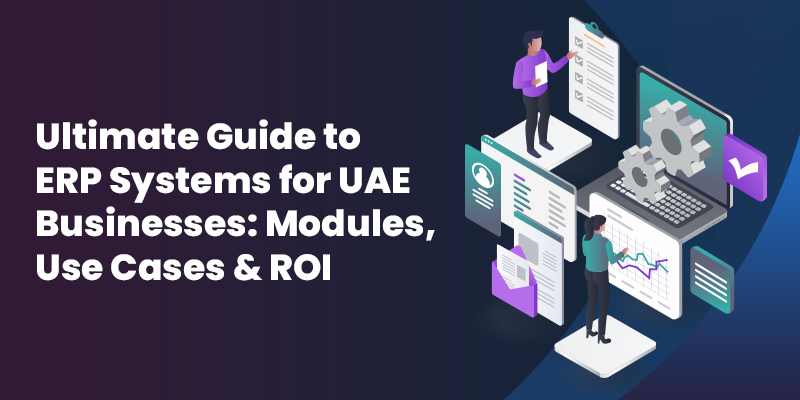
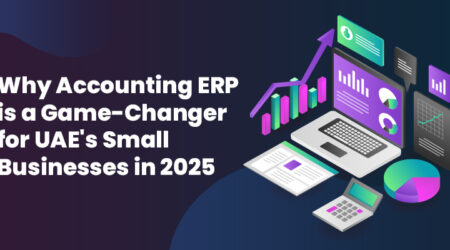
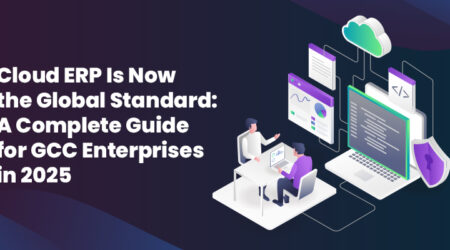


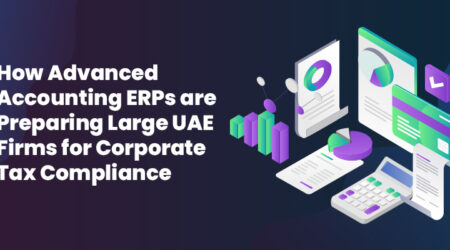
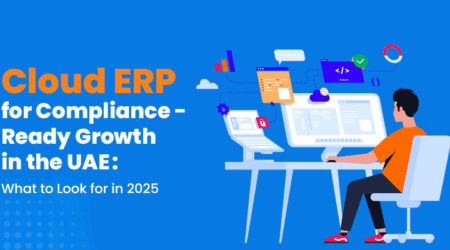
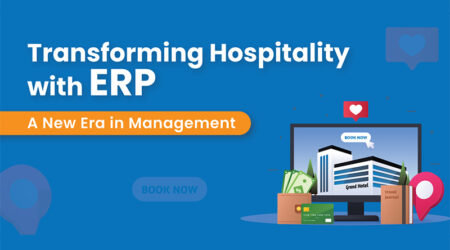
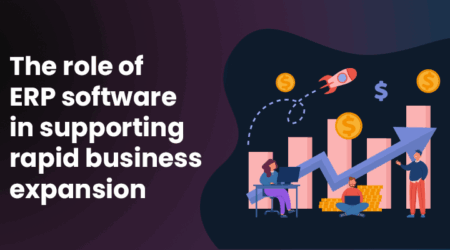
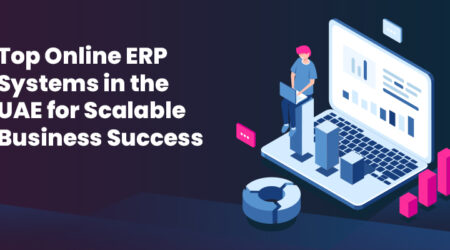
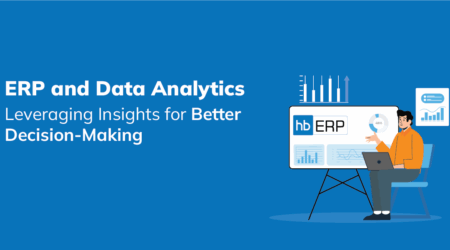
Leave a Reply